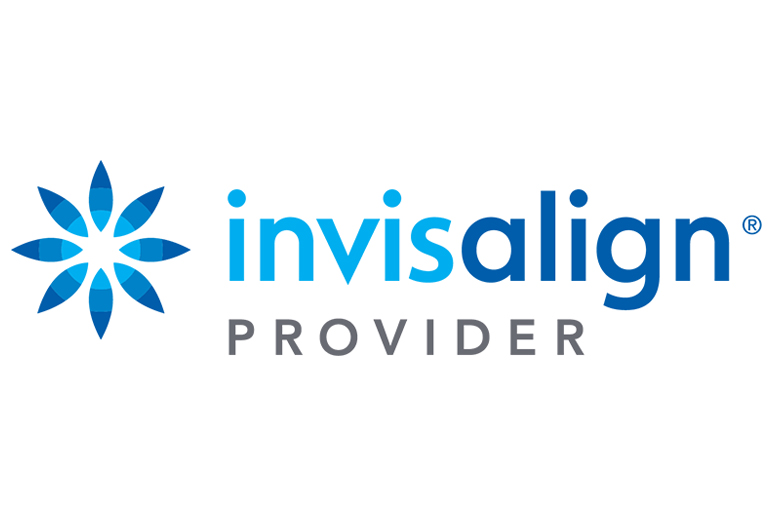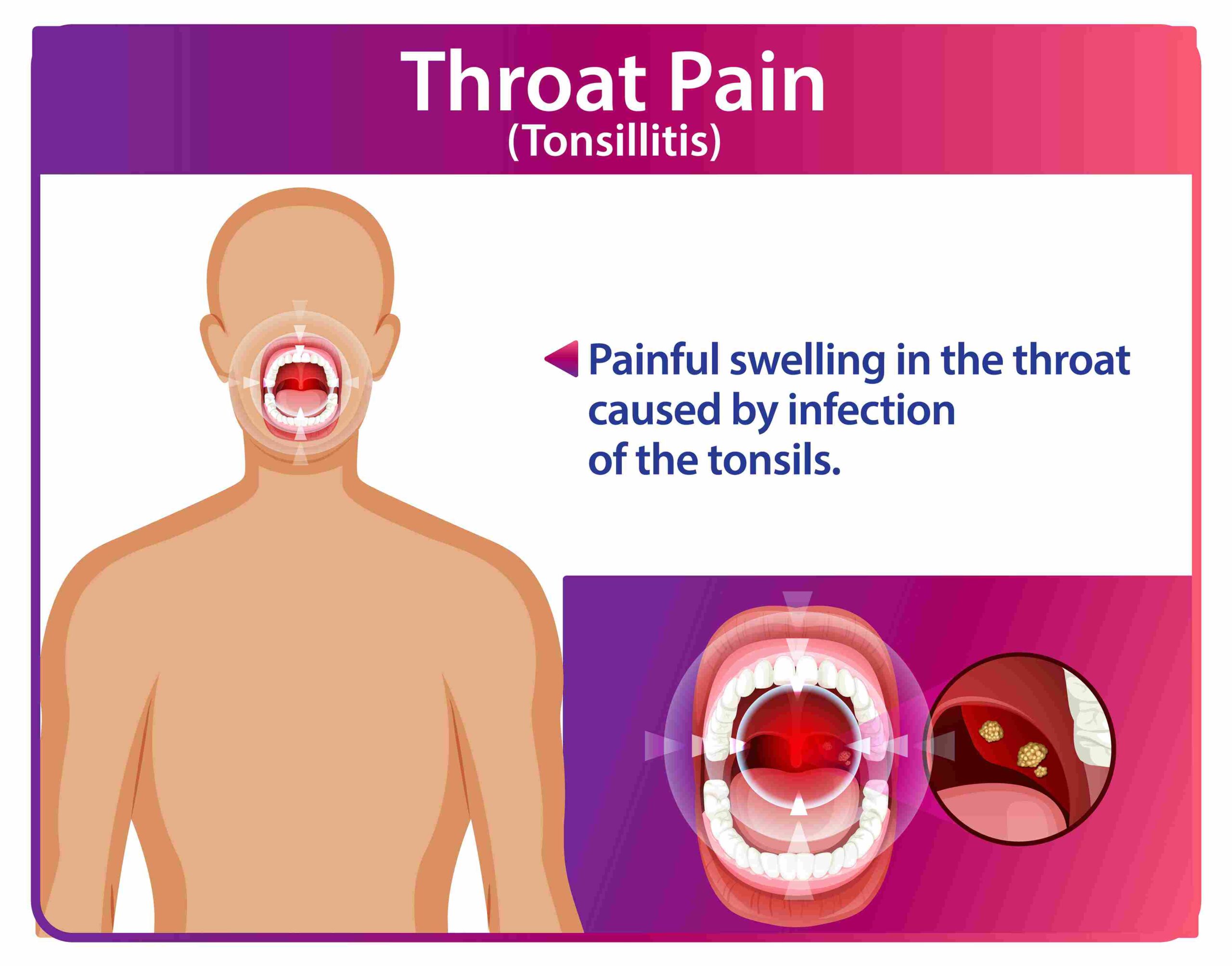When you first notice that telltale sensitivity or spot a small dark area on your tooth, the immediate thought might be dread about expensive dental procedures. But what if there were natural ways to address early cavities and prevent them from progressing? While established cavities require professional treatment, emerging research shows that very early stages of tooth decay can sometimes be slowed or even reversed through natural methods.
Understanding the science behind natural cavity prevention isn’t just about avoiding the dentist – it’s about taking control of your oral health through evidence-based approaches that support your body’s natural healing processes. Let’s explore what really works, what doesn’t, and when you absolutely need professional intervention.
Understanding Cavity Formation: The Science Behind Tooth Decay
Before diving into natural treatments, it’s crucial to understand exactly what happens when cavities form. This knowledge helps you make informed decisions about which natural approaches might work for your specific situation.
The Cavity Development Process
Cavities don’t appear overnight. They develop through a complex process that occurs in stages:
| Stage | What Happens | Reversibility | Symptoms |
|---|---|---|---|
| Initial Demineralization | Acids weaken tooth enamel | Potentially Reversible | Usually none |
| Enamel Decay | Small holes form in enamel | Partially Reversible | Mild sensitivity |
| Dentin Decay | Cavity reaches inner tooth layer | Not Reversible | Pain, sensitivity |
| Pulp Involvement | Infection reaches tooth nerve | Requires Treatment | Severe pain, swelling |
The key takeaway? Natural methods work best during the first two stages. Once decay reaches the dentin layer, you’ll need professional treatment from a qualified dentist in Kharadi or your local area.
Factors That Influence Cavity Development
Understanding these factors helps you target your natural prevention efforts more effectively:
Dietary Factors
- Sugar and refined carbohydrate consumption
- Frequency of eating and drinking (more important than quantity)
- Acidic foods and beverages
- Nutrient deficiencies that affect oral health
Environmental Factors
- Saliva production and quality
- Oral pH levels throughout the day
- Bacterial balance in the mouth
- Fluoride exposure from various sources
Personal Factors
- Genetics and tooth structure
- Medical conditions affecting oral health
- Medications that reduce saliva production
- Stress levels and immune function
Evidence-Based Natural Approaches to Early Cavity Prevention
Let’s explore natural methods that have scientific backing for preventing and potentially reversing very early stages of tooth decay.
Dietary Modifications That Support Tooth Health
Your diet plays a fundamental role in cavity development and prevention. Making strategic changes can significantly impact your oral health outcomes.
Foods That Promote Remineralization
| Food Category | Key Nutrients | Benefits | Examples |
|---|---|---|---|
| Dairy Products | Calcium, phosphorus, casein | Neutralizes acids, provides minerals | Cheese, yogurt, milk |
| Leafy Greens | Calcium, folate, B vitamins | Supports gum health, provides minerals | Spinach, kale, collard greens |
| Nuts and Seeds | Healthy fats, minerals, protein | Stimulates saliva, provides nutrients | Almonds, sesame seeds, walnuts |
| Fish and Seafood | Vitamin D, omega-3s, phosphorus | Enhances calcium absorption | Salmon, sardines, mackerel |
Foods to Limit or Avoid
- Sugary snacks and beverages (especially between meals)
- Sticky candies and dried fruits that cling to teeth
- Acidic drinks like sodas, energy drinks, and citrus juices
- Refined carbohydrates that break down into sugars quickly
Natural Remineralization Techniques
Supporting your teeth’s natural ability to repair early damage is key to preventing cavity progression.
Oil Pulling: Ancient Wisdom Meets Modern Science
Oil pulling involves swishing oil in your mouth for 10-20 minutes daily. Recent studies suggest it can reduce harmful bacteria and support oral health.
How to Practice Oil Pulling Effectively:
- Use coconut oil (contains antimicrobial compounds)
- Swish for 15-20 minutes on an empty stomach
- Don’t swallow the oil (it contains bacteria and toxins)
- Rinse with warm water and brush normally afterward
- Practice daily for best results
Benefits Supported by Research:
- Reduces harmful bacteria in the mouth
- Decreases plaque formation
- May help with gum inflammation
- Freshens breath naturally
pH Balance Optimization
Maintaining proper oral pH is crucial for preventing tooth demineralization and supporting remineralization.
Natural pH Balancing Strategies
| Method | How It Works | Implementation | Effectiveness |
|---|---|---|---|
| Alkaline Foods | Neutralizes mouth acids | Eat more vegetables, less sugar | Moderate to High |
| Water Intake | Dilutes acids, stimulates saliva | Drink throughout the day | High |
| Timing of Meals | Reduces acid exposure time | Limit snacking frequency | High |
| Baking Soda Rinse | Direct pH neutralization | Weekly rinse (not daily) | Moderate |
Warning About pH Manipulation: While balancing oral pH is beneficial, extreme measures can be harmful. Avoid frequent baking soda use or overly alkaline rinses, as they can damage tooth enamel over time.
Nutritional Support for Tooth Remineralization
Certain nutrients play crucial roles in tooth health and the body’s ability to repair early damage.
Essential Vitamins and Minerals
Vitamin D: The Calcium Absorption Enhancer
- Helps the body absorb and utilize calcium effectively
- Supports immune function in the mouth
- Sources: Sunlight exposure, fatty fish, fortified foods
- Recommended: 15-20 minutes of daily sun exposure when possible
Vitamin K2: The Calcium Director
- Helps direct calcium to teeth and bones rather than soft tissues
- Works synergistically with vitamins D and A
- Sources: Fermented foods, grass-fed dairy, organ meats
- Often overlooked but crucial for oral health
Calcium and Phosphorus: The Building Blocks
- Primary minerals that make up tooth enamel
- Must be consumed in proper ratios
- Best absorbed from food sources rather than supplements
- Dairy products provide ideal ratios naturally
Trace Minerals for Oral Health
| Mineral | Function in Oral Health | Natural Sources | Daily Needs |
|---|---|---|---|
| Magnesium | Calcium absorption, enzyme function | Leafy greens, nuts, seeds | 300-400mg |
| Zinc | Immune function, wound healing | Oysters, meat, pumpkin seeds | 8-11mg |
| Copper | Collagen formation, antioxidant | Nuts, seeds, organ meats | 0.9mg |
| Manganese | Bone formation, antioxidant | Whole grains, nuts, tea | 1.8-2.3mg |
Herbal and Natural Remedies With Scientific Support
Several natural substances have shown promise in supporting oral health and potentially slowing early cavity development.
Traditional Remedies That Work
Xylitol: The Sweet Cavity Fighter
- Natural sugar alcohol that bacteria cannot metabolize
- Reduces harmful bacteria populations
- Stimulates saliva production
- Use in sugar-free gum or mints after meals
Green Tea: Polyphenol Power
- Contains catechins that fight oral bacteria
- Has natural fluoride content
- Anti-inflammatory properties support gum health
- Drink unsweetened or use as a mouth rinse
Coconut Oil: Multi-Action Oral Health Support
- Contains lauric acid with antimicrobial properties
- Supports healthy bacterial balance
- Can be used for oil pulling or as a base for homemade toothpaste
- Choose virgin, unrefined coconut oil for maximum benefits
Homemade Natural Tooth Care Products
DIY Remineralizing Toothpaste Recipe
- 4 tablespoons coconut oil
- 2 tablespoons baking soda
- 1 tablespoon calcium carbonate powder
- 10 drops peppermint essential oil
- Mix ingredients and store in a small jar
Natural Mouthwash Options
- Salt water rinse (1/2 teaspoon sea salt in warm water)
- Diluted apple cider vinegar rinse (1 tablespoon in 1 cup water)
- Green tea cooled to room temperature
- Always rinse with plain water after acidic rinses
Lifestyle Factors That Support Natural Cavity Prevention
Your daily habits and lifestyle choices significantly impact your oral health and your body’s ability to fight tooth decay naturally.
Saliva Production Optimization
Saliva is your mouth’s natural defense system. Supporting healthy saliva production is crucial for natural cavity prevention.
Natural Ways to Boost Saliva Production:
- Stay well-hydrated throughout the day
- Chew sugar-free gum containing xylitol
- Eat fibrous foods that require chewing
- Practice stress reduction techniques
- Avoid medications that dry the mouth when possible
Stress Management and Oral Health
Chronic stress impacts oral health in multiple ways:
How Stress Affects Your Teeth:
- Reduces saliva production
- Compromises immune function
- Leads to teeth grinding and clenching
- Increases inflammation throughout the body
- Can trigger poor dietary choices
Stress Reduction Strategies for Better Oral Health:
- Regular exercise and physical activity
- Meditation and mindfulness practices
- Adequate sleep (7-9 hours nightly)
- Social connection and support
- Professional stress management if needed
When Natural Methods Aren’t Enough
While natural approaches can be highly effective for prevention and very early intervention, it’s crucial to recognize when professional treatment becomes necessary.
Signs You Need Professional Treatment
Immediate Professional Care Needed:
- Visible holes or pits in teeth
- Pain when biting or chewing
- Spontaneous tooth pain
- Sensitivity that doesn’t improve with natural methods
- Swelling or signs of infection
Regular Professional Support:
- Biannual cleanings and examinations
- Professional fluoride treatments when appropriate
- Sealants for cavity-prone areas
- Early intervention for developing problems
A qualified dental clinic in Kharadi or your local area can provide comprehensive care that complements your natural prevention efforts.
Creating Your Natural Cavity Prevention Plan
Developing a personalized approach combines multiple natural strategies for maximum effectiveness.
Daily Natural Oral Care Routine
| Time of Day | Natural Care Activities | Duration | Benefits |
|---|---|---|---|
| Morning | Oil pulling, natural toothpaste | 20 minutes | Bacterial reduction, fresh start |
| After Meals | Water rinse, xylitol gum | 5 minutes | Acid neutralization |
| Evening | Thorough brushing, natural mouthwash | 10 minutes | Deep cleaning, overnight protection |
| Weekly | Green tea rinse, pH assessment | 15 minutes | Additional antibacterial support |
Tracking Your Progress
Indicators of Success:
- Reduced tooth sensitivity
- Improved gum health and color
- Fresher breath throughout the day
- Less plaque buildup between cleanings
- Positive feedback from dental professionals
When to Adjust Your Approach:
- If sensitivity increases despite consistent care
- When new problem areas develop
- If natural methods cause irritation
- Based on professional recommendations
The Role of Professional Care in Natural Approaches
Natural cavity prevention works best when combined with appropriate professional care, not as a replacement for it.
Complementary Professional Services
Preventive Treatments That Support Natural Methods:
- Professional cleanings to remove hardened plaque
- Fluoride treatments for enhanced remineralization
- Sealants to protect cavity-prone areas
- Custom mouth guards if you grind your teeth
Diagnostic Tools for Early Detection:
- Digital X-rays to spot problems early
- Intraoral cameras for detailed examination
- Laser cavity detection for minimal intervention
- Saliva testing to assess cavity risk
The best dentist in Kharadi will work with you to create a comprehensive plan that incorporates both natural prevention methods and appropriate professional interventions.
Long-term Success Strategies
Maintaining oral health naturally requires consistency, patience, and realistic expectations.
Building Sustainable Habits
Start Small and Build Gradually:
- Implement one new natural practice at a time
- Focus on consistency rather than perfection
- Track your habits to build accountability
- Celebrate small improvements along the way
Education and Continuous Learning:
- Stay informed about new research in natural oral health
- Learn from reputable sources and dental professionals
- Understand the limitations of natural approaches
- Adapt your routine based on results and professional guidance
Family-Wide Natural Oral Health
Teaching Children Natural Habits:
- Make natural oral care fun and engaging
- Explain the science behind healthy choices
- Lead by example with your own consistent habits
- Work with a family-friendly best dental clinic in Kharadi for professional support
Frequently Asked Questions
1. Can natural methods actually reverse cavities completely?
Natural methods can potentially reverse very early stages of tooth decay (initial demineralization) but cannot restore teeth once actual holes have formed in the enamel. The key is catching problems early:
What Natural Methods Can Do:
- Halt or slow progression of very early decay
- Support remineralization of weakened enamel
- Prevent new cavities from forming
- Improve overall oral health environment
What They Cannot Do:
- Repair established cavities with actual holes
- Replace lost tooth structure
- Treat infections that have reached the tooth pulp
- Substitute for necessary professional treatment
The most effective approach combines natural prevention with early professional intervention when needed.
2. How long does it take to see results from natural cavity treatments?
Results from natural approaches vary significantly based on the extent of damage and consistency of care:
Timeline for Different Improvements:
- Immediate (1-2 weeks): Reduced sensitivity, fresher breath
- Short-term (1-3 months): Improved gum health, less plaque buildup
- Medium-term (3-6 months): Possible remineralization of early spots
- Long-term (6+ months): Overall oral health improvement, fewer new problems
Factors Affecting Success Speed:
- Severity of existing damage
- Consistency with natural care routine
- Overall health and nutrition status
- Professional care integration
- Individual healing capacity
Remember, natural approaches work gradually and require patience and persistence.
3. Are there any risks or side effects from natural cavity treatments?
While generally safer than harsh chemicals, natural treatments can have side effects if used improperly:
Common Concerns and Precautions:
| Natural Method | Potential Risks | Safe Usage Guidelines |
|---|---|---|
| Oil Pulling | Nausea if swallowed, jaw fatigue | Start with 5-10 minutes, never swallow |
| Baking Soda | Enamel erosion with overuse | Use weekly maximum, not daily |
| Apple Cider Vinegar | Acid erosion, sensitivity | Always dilute, rinse with water after |
| Essential Oils | Irritation, toxicity | Use food-grade oils, proper dilution |
General Safety Tips:
- Start slowly with any new natural treatment
- Monitor your response and discontinue if irritation occurs
- Consult with healthcare providers about interactions with medications
- Never delay professional treatment for serious dental problems
4. What's the best diet for preventing cavities naturally?
An effective cavity-prevention diet focuses on providing nutrients for tooth health while minimizing acid-producing foods:
Foods to Emphasize Daily:
- Calcium-rich options: Dairy products, leafy greens, almonds
- Vitamin D sources: Fatty fish, egg yolks, fortified foods
- Fiber-rich vegetables: Stimulate saliva, provide minerals
- Healthy proteins: Support tissue repair and immune function
- Plenty of water: Maintains saliva production, rinses away acids
Timing and Frequency Strategies:
- Limit eating occasions to 3 meals and 1-2 snacks maximum
- End meals with cheese or nuts to neutralize acids
- Drink water throughout the day, especially after acidic foods
- Avoid constant sipping of acidic or sugary beverages
Foods to Minimize:
- Sugary snacks and drinks (especially between meals)
- Sticky foods that cling to teeth
- Highly acidic foods and beverages
- Refined carbohydrates that break down quickly into sugars
5. How do I know if my natural approach is working?
Monitoring progress with natural cavity prevention requires attention to both symptoms and professional assessments:
Positive Signs Your Approach Is Working:
- Reduced sensitivity to hot, cold, or sweet foods
- Healthier gum appearance (pink, firm, no bleeding)
- Fresher breath throughout the day
- Less plaque buildup between cleanings
- Improved overall mouth feel and comfort
Professional Monitoring:
- Regular dental checkups to assess progress
- Digital photography to track visual changes
- Professional feedback on your natural care routine
- X-rays to monitor any existing problem areas
- Saliva testing to assess cavity risk factors
When to Reassess Your Approach:
- If symptoms worsen despite consistent natural care
- When new sensitivity or pain develops
- If professional assessments show progression of problems
- After 3-6 months with no improvement in symptoms
6. Can children safely use natural cavity prevention methods?
Most natural cavity prevention methods are safe and beneficial for children when age-appropriate modifications are made:
Safe Natural Methods for Children:
| Age Group | Recommended Natural Approaches | Precautions |
|---|---|---|
| 2-6 Years | Dietary modifications, water fluoride | Supervision for all activities |
| 7-12 Years | Add xylitol gum, basic oil pulling | Short duration, ensure no swallowing |
| 13+ Years | Full natural routine with modifications | Monitor for proper technique |
Special Considerations for Children:
- Supervision required for all natural treatments initially
- Shorter durations for activities like oil pulling (5-10 minutes maximum)
- Age-appropriate flavors and products to encourage compliance
- Professional guidance from a pediatric-friendly dental clinic in Kharadi
- Focus on education about why these methods help their teeth
Methods to Avoid in Young Children:
- Essential oils (can be too strong or toxic if swallowed)
- Undiluted apple cider vinegar
- Adult-strength natural mouthwashes
- Unsupervised use of any natural treatments
7. When should I choose natural methods over conventional dental treatment?
The decision between natural and conventional approaches depends on the severity of your dental issues and your overall health goals:
Natural Methods Are Most Appropriate For:
- Prevention of future cavities and oral health problems
- Very early stages of demineralization (no visible holes)
- Supporting recovery after professional treatment
- General oral health maintenance between dental visits
- Complementing rather than replacing professional care
Conventional Treatment Is Necessary For:
- Established cavities with visible holes in teeth
- Pain or infection that indicates advanced decay
- Structural damage that requires restoration
- Emergency situations requiring immediate intervention
- Complex dental problems beyond early prevention
The Best Approach Combines Both:
- Use natural methods for daily prevention and maintenance
- Seek professional care for diagnosis, treatment planning, and interventions
- Work with a progressive dentist who supports natural approaches when appropriate
- Regular professional monitoring to catch problems early when natural methods are most effective
Choosing the Right Professional Partner: Look for a dentist or best dental clinic in Kharadi that:
- Supports natural prevention methods when appropriate
- Provides comprehensive education about oral health
- Takes a conservative, preventive approach to treatment
- Respects your preferences while ensuring necessary care is provided
The decision between natural and conventional approaches depends on the severity of your dental issues and your overall health goals:
Natural Methods Are Most Appropriate For:
- Prevention of future cavities and oral health problems
- Very early stages of demineralization (no visible holes)
- Supporting recovery after professional treatment
- General oral health maintenance between dental visits
- Complementing rather than replacing professional care
Conventional Treatment Is Necessary For:
- Established cavities with visible holes in teeth
- Pain or infection that indicates advanced decay
- Structural damage that requires restoration
- Emergency situations requiring immediate intervention
- Complex dental problems beyond early prevention
The Best Approach Combines Both:
- Use natural methods for daily prevention and maintenance
- Seek professional care for diagnosis, treatment planning, and interventions
- Work with a progressive dentist who supports natural approaches when appropriate
- Regular professional monitoring to catch problems early when natural methods are most effective
Choosing the Right Professional Partner: Look for a dentist or best dental clinic in Kharadi that:
- Supports natural prevention methods when appropriate
- Provides comprehensive education about oral health
- Takes a conservative, preventive approach to treatment
- Respects your preferences while ensuring necessary care is provided




